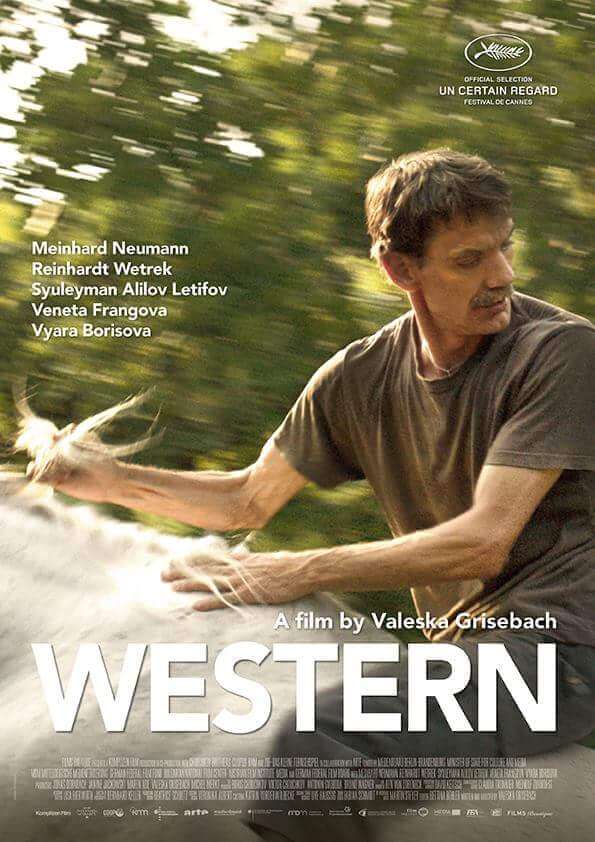A strong lead performance can’t push Western beyond its own conceit

Plenty of films qualify as modern-day Westerns in one sense or another, but it’s rare to see one announce its intentions quite as forthrightly as writer-director Valeska Grisebach’s third film. No cowboys, six-shooters, or 10-gallon hats figure in Western, and its geographical orientation actually runs the opposite way—this is a story set in Eastern Europe, pivoting on “invaders” from the west. Grisebach clearly wanted to be sure, though, that viewers didn’t overlook the various ways in which her film self-consciously echoes the genre’s tropes. Missing that angle really would be a problem, too, because Western isn’t doing a whole hell of a lot else. Although thoughtful and probing, this portrait of good intentions gone awry has been so thoroughly intellectualized that there’s not much juice to it. It’s a movie that’s busy analyzing itself while you watch.
Western’s traditional strong, silent hero is Meinhard (Meinhard Neumann), a middle-aged German laborer and former Foreign Legionnaire who’s has been dispatched to Bulgaria to construct a hydroelectric power plant. While the other Germans on Meinhard’s crew keep to themselves, looking upon the locals with disdain (and pointedly flying the German flag outside their barracks), Meinhard repeatedly wanders into town to see what’s what, making game attempts to bridge the language barrier. He befriends a man named Adrian (Syuleyman Alilov Letifov) after encountering Adrian’s horse, thereby providing Western with a blatant visual evocation of its namesake. There’s also a halting romance of sorts. Decades of mutual mistrust, however, aren’t so easily overcome. (Verbal references to World War II abound; viewers unaware of how the Third Reich strongarmed Bulgaria may not fully comprehend the dynamic.) And while Meinhard’s friendliness and curiosity initially seem laudable—especially compared to his foreman, Vincent (Reinhardt Wetrek), whose naked contempt for all things Bulgarian at one point threatens to cross the line into sexual assault—it gradually becomes clear that he’s made some poor assumptions.
Grisebach’s two previous features, Be My Star (2001) and Longing (2006), were never released in the U.S., but established her on the festival circuit as a director to watch. She’s especially adept at coaxing raw, uninhibited performances from non-professional actors, and she’s found another winner in Neumann, who perfectly embodies the stoic discomfort of a man who feels alienated from his own ostensible people. All the same, Meinhard can sometimes feel more like a case study than a character. Western’s overall shape is pleasing, but it’s often faintly dull from moment to moment, because it never transcends its conceit/thesis, either narratively or formally. Last year’s German triumph, Toni Erdmann (whose writer-director, Maren Ade, is credited as a producer on Western), tackled similar themes far more adroitly, setting much of the film in Bucharest and letting the international skulduggery play as apparent background noise. Here, everything is somehow simultaneously low-key and heavy-handed, which is an enervating combination. Even as you admire its intelligence and integrity, you may wish that someone would spit out a cheroot and hiss, “Draw, sucker.”